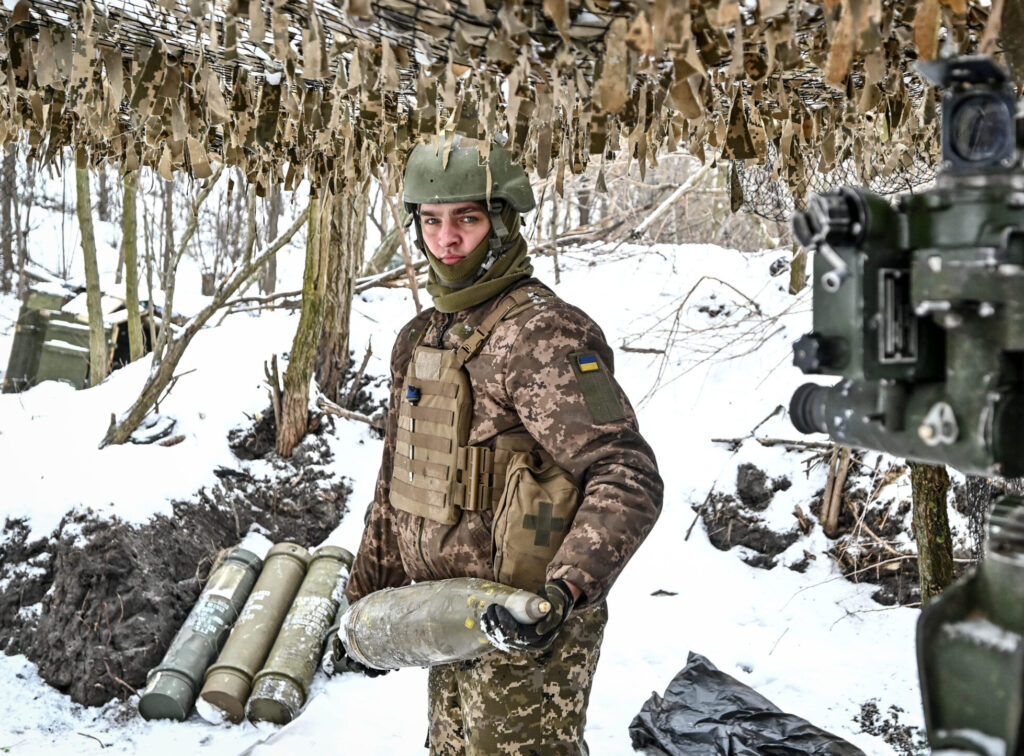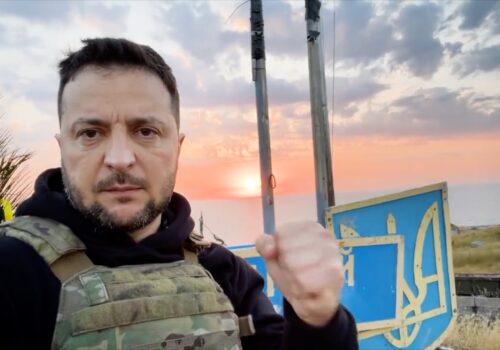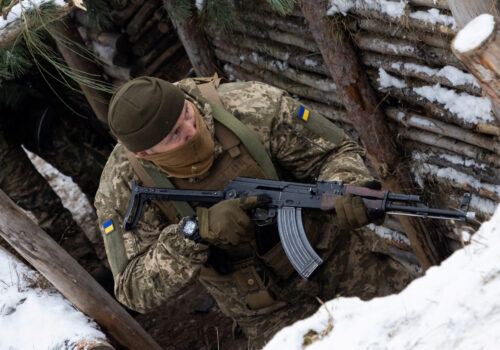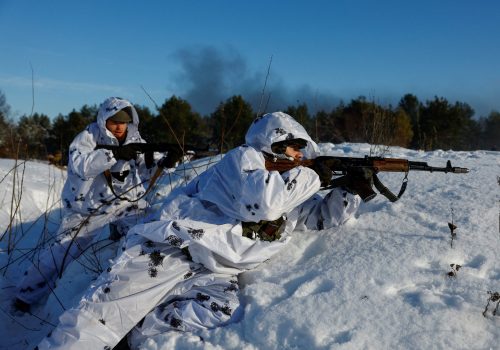Amid mounting concerns over the future of Western military aid for Ukraine, it is worth stressing that Ukrainians remain sincerely grateful for the international support their country has already received over the past two years. At the same time, it is also important to underline the contributions Ukraine itself has made, and continues to make, toward European security.
The most immediately obvious Ukrainian contribution to European security is the country’s role as Europe’s first line of defense against Russian aggression.
Russian leader Vladimir Putin and other senior Kremlin officials frequently define the current war as a conflict against the Western world as a whole; however, Ukraine’s military has so far prevented Russia from advancing further and entering into direct hostilities with other European countries. As long as the Russian military remains fully engaged in Ukraine, most analysts believe Moscow is unlikely to embark on additional invasions.
Crucially, Russia has already suffered catastrophic losses in Ukraine that will seriously impact Putin’s ability to wage a major war for many years to come. According to independent estimates and open source data, hundreds of thousands of Russian soldiers have been killed or wounded in Ukraine, while the Russian military has also lost thousands of tanks, hundreds of aircraft, and a significant number of warships.
The success of the Ukrainian army is also providing European military chiefs with vital intelligence that is helping them to prepare appropriately for a possible future war against Russia. They are able to test new weapons in combat conditions while studying the realities of the modern battlefield and the role played by relatively novel elements including drones and electronic warfare, all without having to deploy their own troops.
Stay updated
As the world watches the Russian invasion of Ukraine unfold, UkraineAlert delivers the best Atlantic Council expert insight and analysis on Ukraine twice a week directly to your inbox.
The failure of Russia’s initial blitzkrieg in spring 2022 has given European leaders vital breathing space to start reviving their own neglected defense capabilities. Although this process has certainly not been as rapid as many in Kyiv would have wanted, it is now beginning to produce results. Armaments production is expected to rise significantly across Europe during 2024, which will boost Ukraine’s war effort while also increasing Europe’s ability to defend itself.
The full-scale Russian invasion of Ukraine has had a transformative impact on European public opinion and has helped unite the continent around the core values of democracy, human rights, and defense against authoritarianism. This process has revitalized NATO and led to the enlargement of the alliance, with Finland joining in 2023 and Sweden expected to follow suit in the coming months.
With Russia no longer able to disguise its hostility toward the Western world, European governments have belatedly begun to address the Kremlin’s extensive efforts to undermine Western societies from within. This has included removing Russian propaganda platforms from the information space and expelling Russian spies operating across Europe under diplomatic cover.
Russian support for extremist parties and protest movements within the EU has also been subjected to unprecedented scrutiny. This has made it more challenging for the Kremlin to continue conducting destabilization campaigns undetected, while in some cases also forcing Moscow’s allies and collaborators to publicly distance themselves from Russia.
Eurasia Center events

Ukraine’s courageous resistance to Russian aggression has served as an alarm call that has encouraged Europe to decouple itself economically from Russia and reduce exposure to Russian influence. During the past few decades, many European countries had been pursuing policies of deepening dependence on Russian energy supplies. Cooperation also extended to a wide range of other sectors including technology and retail. This enabled the Kremlin to build informal alliances throughout Europe’s political and business elites.
Over the past two years, this situation has undergone a radical reappraisal. The shock of Russia’s Ukraine invasion has caused politicans across Europe to rethink relations with Russia and take often painful political decisions to minimize ties with Moscow. If Ukraine had fallen in a matter of days, it is entirely possible that European leaders would have come to terms with the new geopolitical realities and continued doing business with Russia.
The rise of a resurgent and revisionist Russia represents the greatest security threat to Europe for a generation. Ukraine is currently the front line of this confrontation, with Ukrainians playing a pivotal role in the continent’s security. Supporting the Ukrainian military requires considerable financial resources and political will on the part of the country’s European allies. However, if Ukraine were to fail, the cost of countering the Russian threat would rise dramatically.
As we approach the two-year mark of Russia’s invasion, leaders throughout Europe appear increasingly aware of Ukraine’s importance for the future of European security. In recent weeks, statements from Berlin, Paris, London, and other European capitals have indicated growing resolve to expand support for the Ukrainian military. French President Emmanuel Macron summed up the mood recently when he called on France to move toward a wartime economy. “A Russian victory would mean the end of European security,” stated the French leader.
Ultimately, this is a matter of self-interest. Unless Putin is stopped in Ukraine, more and more Europeans are now waking up to the fact that they will soon have to deal with Russia themselves.
Pavlo Zhovnirenko is Chairman of the Center for Strategic Studies in Kyiv and an adviser to the Secretary of Ukraine’s National Security and Defense Council.
Further reading
The views expressed in UkraineAlert are solely those of the authors and do not necessarily reflect the views of the Atlantic Council, its staff, or its supporters.

The Eurasia Center’s mission is to enhance transatlantic cooperation in promoting stability, democratic values and prosperity in Eurasia, from Eastern Europe and Turkey in the West to the Caucasus, Russia and Central Asia in the East.
Follow us on social media
and support our work
Image: A serviceman from the 66th separate cannon artillery battalion of the 406th separate artillery brigade of the Armed Forces of Ukraine is holding a howitzer shell in the Zaporizhzhia direction, southeastern Ukraine, on January 14, 2024. (Dmytro Smolienko via Reuters Connect)




